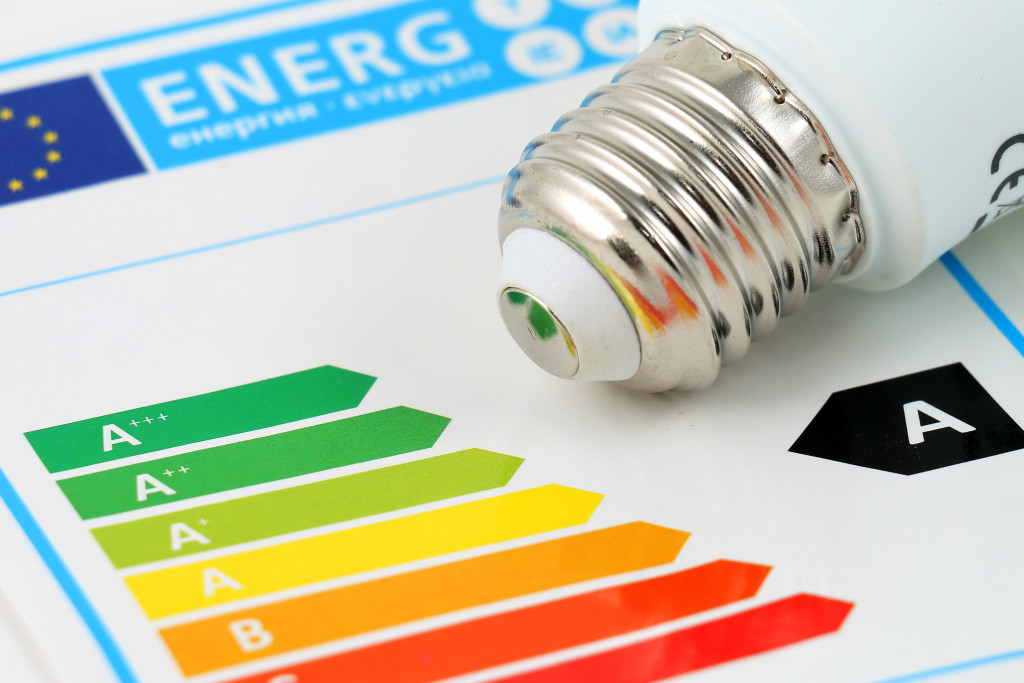Making your business more energy-efficient is a great way to save money and help the environment. But it can be confusing to know where to start. Here are some tips to get you started.
1. Ensure that all lights in the building are turned off when they’re not needed.
Some businesses leave their office lights on all day long. This is an easy way to spend money and waste energy as you are using it unnecessarily and reducing the life of your light bulbs. So keep the lights off unless they’re needed. You can also replace your current light bulbs with LED ones that use less energy than other types of bulbs.
2. Replace old air conditioning units and appliances with newer energy-efficient models.
If your company is in a position to do so, replacing old air conditioning units and appliances with newer ones that use energy more efficiently is a great way to reduce costs. Newer technology is often programmed to stop or reduce their use of energy when it is not needed. Many of them will have power-saving modes that you can use. But if you cannot easily replace these items, do the next best thing which is to get your appliances serviced and maintained regularly to prevent damages that can increase their power usage.
3. Turn your water heater down or off when it’s not being used.
If you have a commercial-sized water heater in your building that isn’t being used, turning the temperature lower or turning it off can save you money by reducing how much energy is used to heat the water. Of course, you can completely turn it off during hot days to minimize costs.
4. Turn your computer and other devices off when not in use.

When you’re away from your desk for a few minutes, shut down your computer and any other office appliances that you can easily turn off such as printers and scanners. Office computers can also be set up so that they go into hibernation mode when not being used for long periods of time. Turning them off will ensure they don’t eat up electricity while you’re gone. It will also save the wear and tear on them which will lengthen their lives. And don’t forget to unplug any equipment that’s not being used as it too will use up electricity if left plugged in, even when turned off.
5. Use natural light wherever you can.
During the day, take advantage of natural light by opening blinds and drapes to let the light in. By letting as much natural light as possible into your building, you’ll not only save on lighting costs but also make your employees more productive as they won’t be as affected by bright lights glaring at them from traditional bulbs.
6. Use power strips to turn off appliances at the end of the day or during breaks.
When your employees are not using office equipment such as printers, scanners, phones, or copiers, ask them to use power strips that can be easily turned off when not in use. This will save you money and help the environment by reducing energy consumption.
7. If possible, reduce your business hours to take advantage of off-peak electricity rates.
If your business is open during the day, you may want to consider closing your doors for a few hours or during lunchtime. By doing so, you’ll be able to take advantage of off-peak electricity rates that are offered by some companies at certain times of the day. For example, some businesses are offered lower rates after 10 p.m. or on weekends. Your business may also qualify for these rates but only if you close during certain hours. So consider this option if it benefits you and your employees.
8. Make sure that all heating and cooling vents are not blocked by office equipment or furniture.
Sometimes, office equipment such as printers or desks can be placed in a way that blocks heating and cooling vents. Make sure that all vents are not blocked or covered in order to prevent your building from becoming too hot or cold, leading to constant changes in your thermostat.
9. Get a building energy audit performed if possible.
If you run a big business, it may be possible to get a building energy audit performed by a professional in order to figure out how your building can save on energy. It’s well worth the investment as the potential savings could be substantial. After identifying any problems with your equipment or appliances, you can make the appropriate adjustments for your benefit.
Saving on your business’ energy usage can be as easy as making a few small changes in the way you and your employees operate. By following some of the tips we’ve provided, you can start saving money right away. And don’t forget that these tips are not only good for your wallet but also for the environment.

